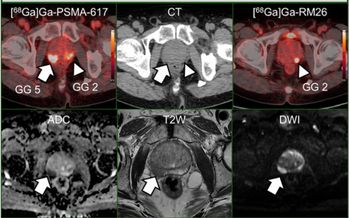
Mobile P.E.T. buys seven GE scanners
Five of seven GE PET Advance scanners purchased by Mobile P.E.T. Systems will travel thousands of miles around the U.S. as systems are placed in Northern and Southern California, Ohio, Florida, and Texas.The two remaining positron emission tomography
Five of seven GE PET Advance scanners purchased by Mobile P.E.T. Systems will travel thousands of miles around the U.S. as systems are placed in Northern and Southern California, Ohio, Florida, and Texas.
The two remaining positron emission tomography units will go to states currently in negotiation with the San Diego-based company, said Jill Janek, Mobile P.E.T. Systems marketing official.
The system going to Texas will serve an area where patients cant reach a PET center unless they drive three hours, said John Relic, CEO of the Austin Radiological Association.
GE Medical Systems introduced its first mobile PET camera at last years RSNA show. Mobile P.E.T. has purchased the machines in a lease financing agreement worth $12 million.
In December of last year, GE placed more than 100 Advance PET systems worldwide. The company expects to double that figure this year, said Beth Klein, general manager of GEs global nuclear/PET business (SCAN 12/15/99).
If Mobile P.E.T. is satisfied with the performance of the Advance, it will consider adding more GE scanners to the fleet, Janek said.
Mobile P.E.T. Systems provides shared PET services to hospitals and other healthcare providers on contract. The firm unveiled its first mobile cardiac unit in March (SCAN 2/28/00). The GE scanners do not measure cardiac activity, Janek said.
Newsletter
Stay at the forefront of radiology with the Diagnostic Imaging newsletter, delivering the latest news, clinical insights, and imaging advancements for today’s radiologists.













